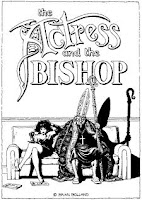 Alright - what you really want to know is 'How to WIN poetry competitions'. However, I've only actually won one or two but have come second or runner up in about ten... and you want me to know what I'm talking about don't you?
Alright - what you really want to know is 'How to WIN poetry competitions'. However, I've only actually won one or two but have come second or runner up in about ten... and you want me to know what I'm talking about don't you?
Sometimes a lower placement in a prestigious competition earns more kudos and cash than winning another one. I won the Big Issue in the North Poetry Competition and the prize was six books, but snapped up over £300 coming second in the Feile Filiochta in 2007 plus an invite to read in Dublin.
Why enter? It raises your profile, boosts your writing CV and can get you published. OK, it costs to enter most competitions but I have actually made a profit over the years with 16 cash prizes. (If I make that sound easy, bear in mind this is out of 140 competitions entered.)
The first point to bear in mind when aiming to win competitions - and pay attention because this is REALLY important - you have to enter them. If you're not sure how to find them, PrizeMagic is really useful (and entertaining) list of poetry competitions in UK and further afield. There's also a regular mailing list called Kudos compiled by Orbis editor, Carole Baldock.
Top ten tips for winning prizes in poetry competitions
- ENTER competitions - if you don't do this, none of this will work.
- Study previous winners of the competition you are about to enter, and competitions in general to get a feel of what judges are looking for
- Choose competitions which are at the right level for you and look kosher. (I've written more about choosing which ones to enter HERE.)
- Submit poems that say something deep about life...
- ...in an unusual way or from a different angle or unexpected point of view...
- ...using strong characters and specific images...
- ...with memorable phrases – especially the first and final sentences...
- ...and no clichés - root them out, at the end of the day.
- Make sure your punctuation and spelling is PERFCET
- follows the rules of the competition to the letter - you will be disqualified if your poem is too long, late, or presented in a way other than stated in the guidelines
Incidentally, I was recently runner up in Ragged Raven's annual competition - and they have chosen my poem title as the name of their excellent annual anthology (*blushes*): 'The world is made of glass' They probably wouldn't have done this is I'd called the poem 'Shards' - which was sorely tempting - so maybe I should have added to the list something about having an interesting title.
Do any of you enter competitions of any kind?







